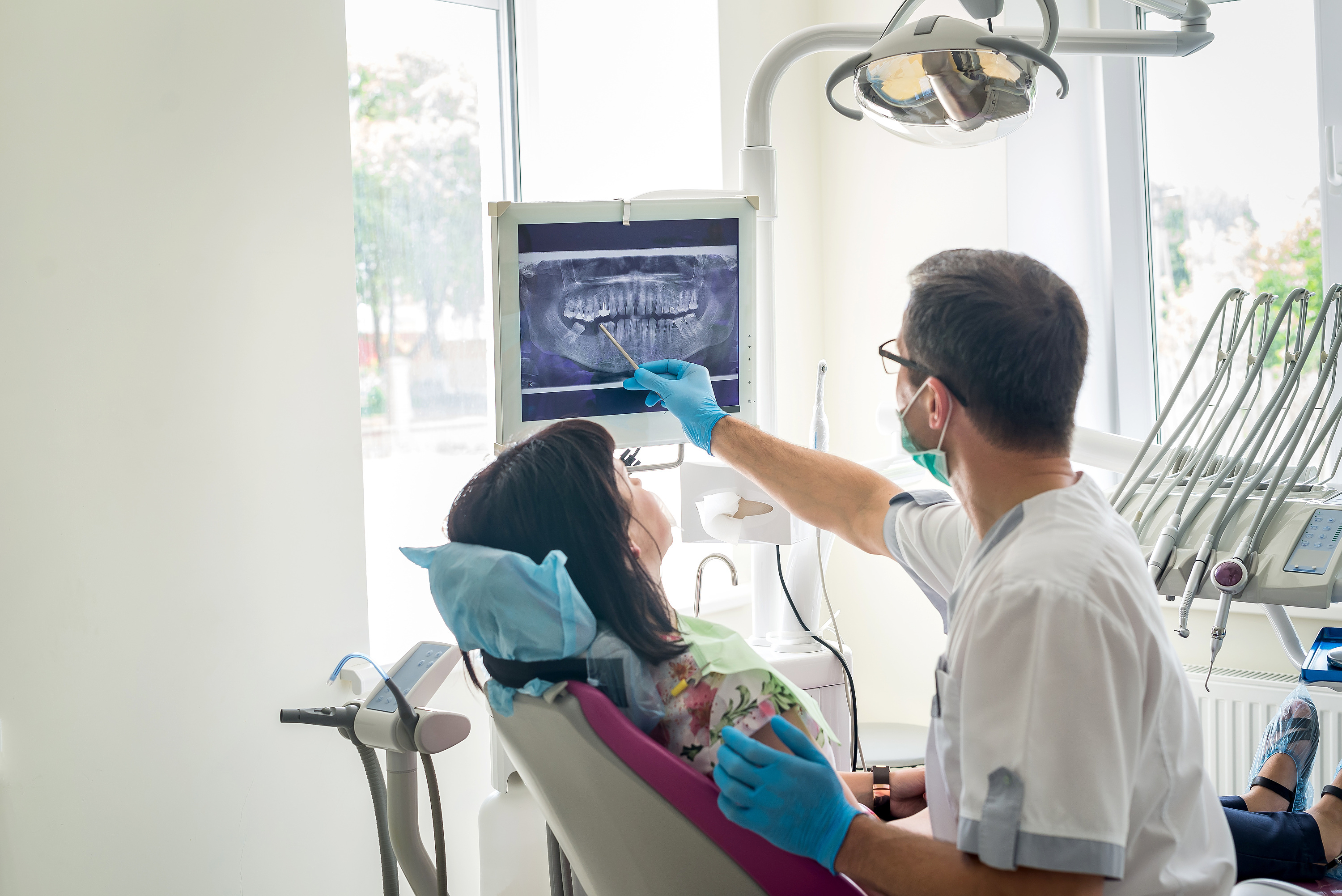Ulrich Hegerl has been treating patients with depression for decades. The professor at the Clinic for Psychiatry, Psychosomatics and Psychotherapy at the Goethe University in Frankfurt has recently been getting help from the Internet. A number of young companies are offering online help for mental health. However, not every app can keep what it promises, warns the doctor, who is also chairman of the German Depression Aid Foundation. Because to this day, the disease is a "huge source of misunderstandings."
WORLD: More and more start-ups are taking care of mental health on the internet. They offer virtual yoga sessions, mindfulness apps, online self-help groups or referrals to therapists. Does this help people with mental problems find help faster?
Ulrich Hegerl: It all depends on what kind of problems you have. If I want to relax, a yoga or mindfulness app can give me nice guidance. But as soon as a person actually has depression, that changes: Even mild depression is a serious brain disease.
WORLD: How can you tell?
Ulrich Hegerl: A doctor – usually also a family doctor – can diagnose depression based on various symptoms: These range from a depressed mood with inner emptiness to the inability to perceive one’s own feelings and a lack of interest, even in things that used to give you pleasure to have. In addition, there are often feelings of guilt, listlessness, sleep disorders and often suicidal thoughts.
WORLD: And then an app can no longer help?
Ulrich Hegerl: Depression is a serious, often life-threatening illness and it's a bad idea to download something from the internet and treat yourself. Life expectancy when diagnosed with depression is reduced by an average of ten years. Heart attack, stroke, suicide - many risks are significantly increased. Expert treatment is required.
We don't treat appendicitis by laying on of hands. Research has shown that depression apps work better with professional support from a general practitioner or a specialist. They are not a substitute for treatment with psychotherapy and/or medication, but can accompany you or bridge the waiting time for a place in psychotherapy.
WORLD: However, many patients wait for months for a place in therapy.
Ulrich Hegerl: That's true. Many do not know that you can also turn to your family doctor or psychiatrist. Of these, most people with depression are treated, usually with antidepressants. Psychotherapists, who mainly offer individual therapies, can only treat a relatively small number of patients, hence the bottlenecks. Digital psychotherapy-like programs can bring some relief here and improve the self-management of those affected.
WORLD: And how do I know which offer is good?
Ulrich Hegerl: It's worth taking a look at who the provider is. Are mental health professionals, such as psychiatrists or psychotherapists, involved? Is there a university or a health insurance company behind it? Or perhaps dubious providers who make great promises of salvation? Are there any scientific studies on the effectiveness and safety of this app? I would also make sure that the app uses methods that have already been scientifically proven to be effective for depression. This is primarily cognitive behavioral therapy.
WORLD: Apps from young companies like Selfapy or Wellsome are now available on prescription. Is that some kind of seal of approval?
Ulrich Hegerl: In fact, there are strict regulations for these so-called digital health applications and proof of effectiveness must also be available. It is particularly important for depression to be accompanied by a doctor or psychotherapist.
The German Depression Aid and Suicide Prevention Foundation offers the free online program iFightDepression, which is available in 12 different languages, including Arabic and Ukrainian. It has now been used by more than 20,000 people. Access is via trained doctors or psychological psychotherapists who accompany those affected during use.
WORLD: However, everyday exercises alone are often not enough. Doctors often prescribe additional medication for depression. Many patients are skeptical. Right?
Ulrich Hegerl: Most people in Germany are initially skeptical about psychotropic drugs. This is because people do not see depression as a disease in its own right, but as a reaction to difficult life circumstances.
If one believes that the excessive workload or the partnership conflict are to blame for the depression, then it seems understandably absurd to take medication because of it. Sometimes it takes years for those affected to understand that depression is an independent disease with altered brain function and that medication makes sense. Their effectiveness is well documented and they are not addictive like sleeping pills and tranquilizers, although many people worry about them.
"Everything on shares" is the daily stock exchange shot from the WELT business editorial team. Every morning from 7 a.m. with our financial journalists. For stock market experts and beginners. Subscribe to the podcast on Spotify, Apple Podcast, Amazon Music and Deezer. Or directly via RSS feed.

 His body naturally produces alcohol, he is acquitted after a drunk driving conviction
His body naturally produces alcohol, he is acquitted after a drunk driving conviction Who is David Pecker, the first key witness in Donald Trump's trial?
Who is David Pecker, the first key witness in Donald Trump's trial? What does the law on the expulsion of migrants to Rwanda adopted by the British Parliament contain?
What does the law on the expulsion of migrants to Rwanda adopted by the British Parliament contain? The shadow of Chinese espionage hangs over Westminster
The shadow of Chinese espionage hangs over Westminster What High Blood Pressure Does to Your Body (And Why It Should Be Treated)
What High Blood Pressure Does to Your Body (And Why It Should Be Treated) Vaccination in France has progressed in 2023, rejoices Public Health France
Vaccination in France has progressed in 2023, rejoices Public Health France Food additives suspected of promoting cardiovascular diseases
Food additives suspected of promoting cardiovascular diseases “Even morphine doesn’t work”: Léane, 17, victim of the adverse effects of an antibiotic
“Even morphine doesn’t work”: Léane, 17, victim of the adverse effects of an antibiotic Collection of booklet A stalls in March
Collection of booklet A stalls in March Kering expects a 40 to 45% drop in operating profit in the first half
Kering expects a 40 to 45% drop in operating profit in the first half Smartphones, televisions, household appliances… MEPs adopt a “right to repair”
Smartphones, televisions, household appliances… MEPs adopt a “right to repair” Fintechs increasingly focused on business services
Fintechs increasingly focused on business services The standoff between the organizers of Vieilles Charrues and the elected officials of Carhaix threatens the festival
The standoff between the organizers of Vieilles Charrues and the elected officials of Carhaix threatens the festival Strasbourg inaugurates a year of celebrations and debates as World Book Capital
Strasbourg inaugurates a year of celebrations and debates as World Book Capital Kendji Girac is “out of the woods” after his gunshot wound to the chest
Kendji Girac is “out of the woods” after his gunshot wound to the chest The Court of Auditors scrutinizes the management and projects of the Center Pompidou
The Court of Auditors scrutinizes the management and projects of the Center Pompidou Skoda Kodiaq 2024: a 'beast' plug-in hybrid SUV
Skoda Kodiaq 2024: a 'beast' plug-in hybrid SUV Tesla launches a new Model Y with 600 km of autonomy at a "more accessible price"
Tesla launches a new Model Y with 600 km of autonomy at a "more accessible price" The 10 best-selling cars in March 2024 in Spain: sales fall due to Easter
The 10 best-selling cars in March 2024 in Spain: sales fall due to Easter A private jet company buys more than 100 flying cars
A private jet company buys more than 100 flying cars This is how housing prices have changed in Spain in the last decade
This is how housing prices have changed in Spain in the last decade The home mortgage firm drops 10% in January and interest soars to 3.46%
The home mortgage firm drops 10% in January and interest soars to 3.46% The jewel of the Rocío de Nagüeles urbanization: a dream villa in Marbella
The jewel of the Rocío de Nagüeles urbanization: a dream villa in Marbella Rental prices grow by 7.3% in February: where does it go up and where does it go down?
Rental prices grow by 7.3% in February: where does it go up and where does it go down? Europeans: “All those who claim that we don’t need Europe are liars”, criticizes Bayrou
Europeans: “All those who claim that we don’t need Europe are liars”, criticizes Bayrou With the promise of a “real burst of authority”, Gabriel Attal provokes the ire of the opposition
With the promise of a “real burst of authority”, Gabriel Attal provokes the ire of the opposition Europeans: the schedule of debates to follow between now and June 9
Europeans: the schedule of debates to follow between now and June 9 Europeans: “In France, there is a left and there is a right,” assures Bellamy
Europeans: “In France, there is a left and there is a right,” assures Bellamy These French cities that will boycott the World Cup in Qatar
These French cities that will boycott the World Cup in Qatar Football: VAFC supporters are ironic after their descent into National
Football: VAFC supporters are ironic after their descent into National Tennis: Carlos Alcaraz should play in Madrid
Tennis: Carlos Alcaraz should play in Madrid Football: victim of discomfort in the middle of a match in mid-April, Evan Ndicka will resume training with AS Roma
Football: victim of discomfort in the middle of a match in mid-April, Evan Ndicka will resume training with AS Roma Ligue 1: PSG almost champion, OM, shock for the C1… 5 reasons to follow an exciting evening
Ligue 1: PSG almost champion, OM, shock for the C1… 5 reasons to follow an exciting evening


















